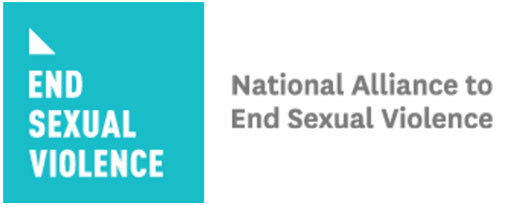Every area of a victim’s life is affected by sexual violence whether it is a child sexually abused by a family member, a teenager coerced into sex by an older man, a college student drugged and assaulted at a party, or an adult raped by a stranger or by her ex-husband. Advocates at 1300 rape crisis centers across the United States bear witness to the trauma of sexual violence every day and see the torment caused by the loss of power and control over one’s body—one’s most intimate self –that is at the heart of sexual violence.
Most of us can’t imagine what it would be like to face that pain and trauma. None of us – including legislators or advocates – know and understand a particular rape victim’s situation. Each victim’s experience is different. We cannot walk in her shoes.
• At least 1-5% of sexual assaults result in pregnancy.
• In 2008, the Supreme Court of California upheld that pregnancy resulting from rape constitutes great bodily injury.
• Adolescent girls who experience intimate partner violence are 4-6 times more likely to become pregnant than girls in non-abusive relationships.
• 40% of pregnant women in abusive relationships report their pregnancy was unintended, as opposed to only 8% of women in non-abusive relationships.
Decisions surrounding pregnancy resulting from rape are very personal decisions in which victims deserve a full range of options without judgment or coercion from others. The cornerstone of advocacy is supporting victims in regaining control over their bodies and lives by explaining all available options and supporting the victim’s decision about what is best for her and for her family. Advocates help victims regain their sense of dignity and control and assist victims to feel empowered in making these very personal, difficult decisions following pregnancy from rape. This is a medical emergency.
If the victim makes the decision to parent a child conceived through rape or to place the child for adoption, advocates will support her decision. Likewise, if after exploring all of her options, a victim decides that she cannot go through with a pregnancy resulting from the crime and decides to have an abortion, advocates will support her decision and legal rights. Victims have every right to all safe and legal options available to them. It is HER decision. And when someone gives birth to a child conceived from rape, the perpetrator should not have parental rights to that child, placing additional life-long trauma on the victim.
The healing process begins with empowerment and regaining the control lost in an assault. Victims of sexual assault must be able to reclaim control of their own bodies and lives. Rape crisis centers are not there to make decisions for victims; advocates are there to listen and provide support in whatever difficult personal decision a victims makes. No restrictions should be placed on rape crisis centers – the one safe place any victim can call 24/7 to heal from the trauma – providing this support. Victims have suffered in silence long enough and will no more. Enough power has already been taken. It’s time to give it back.
State and federal governments must support victim self-determination and not impede the ethical imperatives of advocacy by placing any restrictions on the rape crisis center advocates, volunteers and others, regardless of governmental funding stream, who are there to support victims and sit with them through very painful, difficult decisions that they never should be faced with in the first place.
Holmes, M.M., et al. (1996). Rape-related pregnancy: Estimates and descriptive characteristics from a national sample of women. American Journal of Obstetrics and Gynecology, 175(2): 320-25.
People v. Cross, 45 Cal. 4th 58 (2008).
Silverman, J.G., Raj, A., & Clements, K. (2004).Dating violence and associated sexual risk and pregnancy among adolescent girls in the United States.Pediatrics, 114 (2), e220-225.
Hathaway, J.E., Mucci, L.A., Silverman, J. G., Brooks, D.R., Mathews, R., &Pavlos, C.A. (2000). Health status and health care use of Massachusetts women reporting partner abuse. American Journal of Preventative Medicine, 19 (4), 318-321.
____________________________
HAVE ADDITIONAL QUESTIONS?
Contact Terri Poore, Policy Consultant at (850) 228-3428 or terri@endsexualviolence.org.
The National Alliance to End Sexual Violence is the voice in Washington for state coalitions and local programs working to end sexual violence and support victimss.


